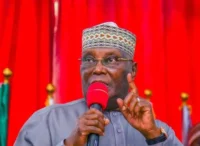By Chinwendu Obienyi
Nigeria has significantly reduced its debt service burden, bringing the debt service-to-revenue ratio down to around 50 per cent from a record-high 97 per cent two years ago, President Bola Tinubu said in his Independence Day broadcast on Wednesday.
The development follows what he described as a decisive repayment of a large portion of the controversial “Ways and Means” advances that had threatened the country’s fiscal stability.
Addressing the nation, Tinubu said his administration inherited “a near-collapsed economy” weighed down by decades of distortive fiscal policies, unsustainable subsidies, and weak revenue mobilisation.
He argued that bold reforms implemented since 2023, including the elimination of fuel subsidies and multiple foreign-exchange windows, have started to restore stability to Africa’s largest economy.
Nigeria’s debt service costs have long been a critical pressure point for Africa’s most populous nation. By 2022, nearly all federal revenues were swallowed by interest and principal repayments, leaving little fiscal room for capital expenditure and social investment. However, Tinubu said the government’s aggressive fiscal reforms are now paying off, allowing the state to reallocate resources.
“Our debt service-to-revenue ratio has been significantly reduced from 97 per cent to below 50 per cent. We have paid down the infamous ‘Ways and Means’ advances that threatened our economic stability and triggered inflation,” the President said.
The Ways and Means facility, an overdraft from the Central Bank of Nigeria (CBN) used extensively by previous administrations to plug fiscal shortfalls, was one of the most controversial aspects of Nigeria’s recent debt profile. Analysts had said that unchecked borrowing through the facility worsened inflation, pressured the naira, and undermined fiscal transparency.
Tinubu suggested that repaying a substantial portion of those advances has created breathing space for the government to redirect spending toward critical infrastructure and social programmes.
The President also highlighted a surge in government revenues, particularly non-oil collections. According to Tinubu, Nigeria surpassed its 2025 non-oil revenue target of N20 trillion by August, with September alone generating N3.65 trillion, over four times the monthly haul in May 2023.
“Our tax-to-GDP ratio has risen to 13.5 per cent from less than 10 per cent” he said, adding that a new tax law scheduled to take effect in January 2026 is designed to expand the tax base rather than burden existing taxpayers.
This revenue boost has contributed to narrowing the government’s financing gap and reducing dependence on borrowing.
Nigeria’s improved fiscal position is also reflected in its external balance sheet. Tinubu said the country’s foreign reserves climbed to $42.03 billion in September 2025, the highest level since 2019. Meanwhile, Nigeria has recorded five consecutive quarters of trade surpluses, supported by stronger oil output and rising non-oil exports.
Investor confidence has followed suit, with credit rating agencies upgrading Nigeria’s outlook and the equities market rallying. The Nigerian Stock Exchange’s All-Share Index has risen to 142,000 points in late September, up from about 55,000 in May 2023.
“The world is taking notice of our efforts,” Tinubu said, positioning the reforms as a foundation for long-term growth.
The government also credited foreign-exchange reforms with reducing arbitrage opportunities and narrowing the gap between official and parallel market rates. The naira has stabilised from the volatility of 2023 and 2024, with rates now less dependent on swings in crude oil prices.
At the same time, inflation which peaked above 25 per cent in mid-2023, fell to 20.12 per cent in August 2025, the lowest in three years. The Central Bank recently cut its benchmark interest rate for the first time in five years, citing improved macroeconomic conditions.
Tinubu stressed that reforms are not only about fiscal consolidation but also about social welfare. He said N330 billion has been disbursed to about eight million vulnerable households through conditional cash transfers, with beneficiaries receiving up to N25,000 in tranches.
By freeing up funds once consumed by subsidies and debt service, the government said it is able to invest in education, healthcare, power, roads, and digital infrastructure.
However, citizens as well as economic analysts have stated that food prices remain high, as insecurity in parts of the country continues to threaten agricultural output, and Nigeria’s reliance on crude oil revenues, though easing, still poses exposure to external shocks.
But, Tinubu whilst framing the fiscal turnaround as a marker of resilience and discipline, said, “We have restored fiscal health and redirected the economy towards a more inclusive path,” he said. “The seeds of those difficult but necessary decisions are bearing fruit.”
As Nigeria marks 65 years of independence, the administration is betting that restored fiscal credibility and reduced debt pressures will set the stage for sustained growth and broader investor confidence.

















Leave a comment